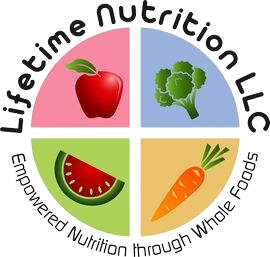|
Sticking with the digestion theme, let's talk about gastritis. What is Gastritis? Gastritis is any inflammation in the stomach that does not involve an ulcer, typically involving inflammation of the mucosa. Doctors have previously believed that gastritis is the result of excess stomach acid and used drugs to decrease the gastric juices. In 1983, researchers discovered that H pylori was the leading cause of gastritis. If you have gastritis, it means that the body’s protective functions are not working properly. Symptoms: Gnawing or burning ache, pain in stomach that gets better or worse with food, loss of appetite, bloating, belching, hiccup, indigestion, nausea, vomiting, dark stools, feeling full even if you haven’t eaten much, weight loss. Causes: There are many possible causes of gastritis: Alcohol, H. Pylori, NSAID use, smoking, chronic stress, bile reflux, drinking poisons or other caustic substance, Autoimmune disorder, Corticosteroids, cancer drugs, antibiotics, excess coffee, organ failure, severe stress or trauma. The top three causes of gastritis H. Pylori - a bacteria that burrows into the mucosa of the stomach because of this ability, it is able to hide pretty well and is difficult to eradicate. It creates an immune system response that can inflame the stomach wall and may eventually lead to an ulcer. Because of inflammation, there are increased free radicals that deplete antioxidants in the gastric juices and stomach wall, it is typically treated with antibiotics. Non-Steroidal Anti-Inflammatory Drugs (NSAIDs) - include Aspirin, Ibuprophen, Naproxin and Celebrexl. They disrupt the activity of the COX-1 enzyme which is essential for fatty acid production and for maintaining the health of the stomach wall. Alcohol is very destructive to most of the digestive tract and can cause many GI issues. People who drink daily, over time, can develop GI issues. Toxins that may irritate or upset the digestive tract:
How Gastritis is treated: In conventional medicine, doctors focus on decreasing stomach acidity with medications which have side effects and can alter the normal structure of the digestive tract wall. By decreasing stomach acidity, you are allowing the possibility for bacteria to grow there. You are also decreasing intrinsic factor. Intrinsic factor is necessary for the absorption of B12, so your B12 may also be depleted. The holistic approach rebuilds the integrity of the stomach lining and normalizes the gastrointestinal tract pH and function. What you can do:
Juices for stomach acid balance: Carrot juice, Carrot/Cabbage juice, Pineapple/Papaya juice Teas that help soothe: Slippery elm tea, Chamomile tea, Ginger tea Nutrients that encourage mucus production and growth of new cell linings: Beta carotene, Vitamin C, Vitamin E, Zinc, Copper, Manganese and N-Acetyl cysteine. Supplements that may help
Sources: Digestive Wellness, Liz Lipski; Healthy Healing, Linda Page, PhD; Digestive Intelligence, Irina Malveikova, MD; Optimal Digestive Health, A Complete Guide, Healthy Digestion the Natural Way, D Lindsey Burkson; The Inflammation Syndrome, Jack Challem Comments are closed.
|
AuthorKerri Ferraioli Archives
March 2023
Categories |

 RSS Feed
RSS Feed